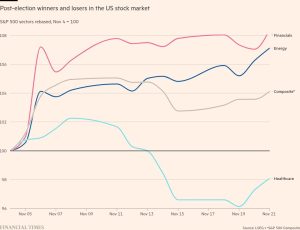Gordon Brown champions new funding push for global education
Stay informed with free updates
Simply sign up to the Education myFT Digest — delivered directly to your inbox.
An innovative new funding mechanism championed by former UK prime minister Gordon Brown is to provide $1.5bn in low-cost loans to improve education in poorer countries around the world.
The International Finance Facility for Education (Iffed) is set to launch what it described as the largest one-off investment in decades to improve inadequate schooling in response to global education budget cuts.
The initial $1.5bn has been raised through support from governments including the UK, Sweden and Canada, and from philanthropic and corporate backers, who will offer guarantees to underwrite a programme to disburse new loans and grants through leading multilateral financial institutions.
Iffed has signed a first agreement with the Asian Development Bank, and is set to authorise an initial disbursement in 2024 of over $100mn. It has approved 10 Asian countries as being eligible for financing, including Bangladesh, India, Sri Lanka and Vietnam.
Discussions are advancing with other backers and intermediaries including the African Development Bank and the World Bank.
Many lower- and middle-income countries have cut their education budgets in recent years, and the World Bank has warned of low levels of basic numeracy and literacy — notably in Africa — compounded by further “learning loss” driven by pandemic-era school closures.
An estimated 250mn school-age children are currently not in class, with 800mn of the world’s 2bn children set to leave education without any secondary qualifications.
International aid is dominated by health projects, while education represents just a small fraction and countries often struggle to demonstrate short-term returns to donors.
Brown, the UN’s global education envoy, told the Financial Times that the “groundbreaking innovation” in international development finance had been years in the making. He spoke after Iffed received an AAA rating from credit agency Moody’s and was graded AA+ by S&P.
Under the programme, multilateral banks lend money to governments of lower- and middle-income countries at a very low interest rate. This is in exchange for commitments to invest the money alongside existing domestic spending on credible national education programmes.
“People traditionally think of international development in terms of grants or loans,” Brown said. “I think the transformative innovation here is to think not just of guarantees, but how you can leverage guarantees to create the kinds of resources that will never be created in the near future through loans and grants alone.”
He added: “It is shocking that nearly half of all the children on our planet still have no formal schooling. But that can begin to be consigned to history.”
Brown said the model had the capacity to become the “third arm for the development agenda” and was a “vehicle that should be more widely used” across other areas of public policy, such as health.
Donor backing will help to ensure that the new bonds issued by the multilaterals have a high credit rating. So far Canada, Sweden and the UK have committed $342mn in guarantees and paid-in capital and $100mn in grants.
#Gordon #Brown #champions #funding #push #global #education



